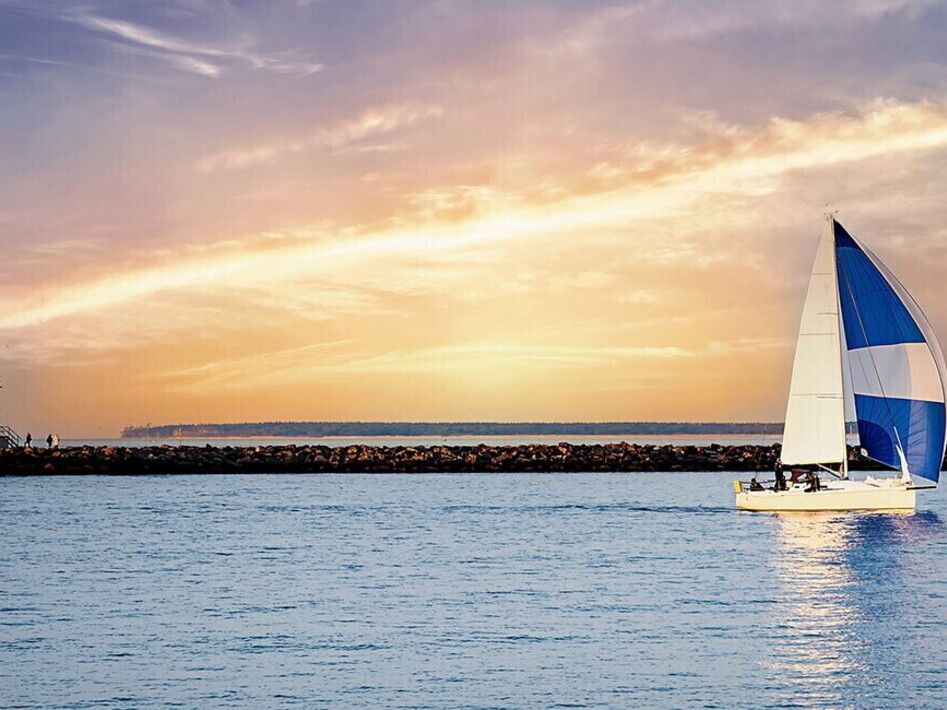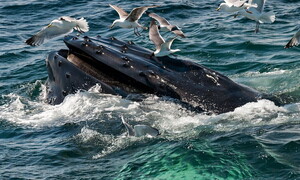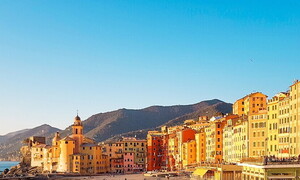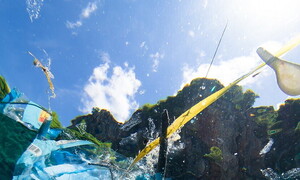Seafarers
18 JUNE 2023

The sea has always exerted a huge fascination on man: the ocean plays a major role in many stories, legends, films, and books. Many remain enchanted watching reflections on the water, then there are those who can't resist a dip; others, on the other hand, are fascinated by the underwater world. But beyond its evocative power and the daydreaming that it arouses in us, the sea, for many, is also a place of work. Cargo and merchant vessels, cruise ships and platforms are words that represent a world of often unknown professions... What better time than World Oceans Day to take a look at jobs at sea?
Jobs at Sea
Sailor
When it comes to jobs at sea, probably one of the first that springs to mind is that of a sailor. The job of a sailor is one of the oldest professions and certainly one of the most arduous. But what exactly does a sailor do? Nowadays, the job of a sailor does not take place exclusively on board a ship: a sailor can also work on land, for example at marinas, overseeing mooring operations or port services logistics. The tasks of sailors on board ships, on the other hand, range from steering the vessel, as in docking and mooring operations, to ship maintenance. They also provide assistance to passengers and other on-board services, such as preparing meals and victualling. In Italy, professional sailors are registered as "seafarers", a term indicating people working on board ships and who are registered with a port authority.
Lighthouse keeper
One of the most evocative figures related to the sea is definitely that of a lighthouse keeper. Who has never thought, at least once in their life, what it means to live and work in one of these towers where the sea can be seen from every angle?
Lighthouse keepers had the important task of turning on the beacon of the lighthouse at dusk and turning it off at dawn, thus providing a point of reference for maritime navigation. However, this job is dying out because, thanks to new technologies and automation, the daily presence of a person inside the lighthouse is no longer necessary. The keepers no longer live in the lighthouse, but visit it only for routine maintenance and in case of a malfunction. As a result, many lighthouses worldwide have remained abandoned for decades, exposed to neglect and the fury of the elements. Yet their position on the sea, often very picturesque, and the history they are steeped in, have led to a renewed interest in lighthouses in recent years. Some have become museums or the headquarters of historical associations, others have been transformed into beautiful hotels or holiday homes. In fact, due to their location, almost always breathtaking, they attract all those travellers united by a desire to become "lighthouse keepers", even for just a few days.
Underwater archaeologist
If the sea and history are your passion, then underwater archaeology is the profession for you! Underwater archaeology is a branch of traditional archaeology that came into being just over half a century ago, to study the remains of past civilizations buried beneath the seabed. The sea, in fact, contains many archaeological artefacts, for example those hidden in ancient sunken vessels. Indeed, the job of an underwater archaeologist is to discover and bring to the surface this valuable information hidden in underwater artefacts and wrecks. Thanks to new technologies, archaeologists are able to go to depths that only a century ago were unimaginable. As can be easily imagined, love for the sea and history alone are not enough to practice this profession. It is essential to carry out appropriate studies, acquiring a degree in archaeology or preservation of cultural heritage. Subsequently you can choose a field of specialisation, becoming experts in river, marine, lagoon or submarine archaeology. Additionally, you must have a scuba diving license.
Marine biologist
When we think of marine biologists, we often imagine them following whales or swimming with dolphins, always globe trotting, perhaps sailing in tropical seas... In truth, this idea is often far from the truth. Marine biologists who lead that kind of life are a small percentage. This is because marine biology is a vast subject, which includes several specialisations: the task of marine biologists, in fact, is to study the marine ecosystem, which includes seas, oceans and brackish areas. So it's easy to see how this science offers a "sea full" of career opportunities.
Generally, the work of marine biologists is divided between field work, in which they collect samples of marine life, and laboratory work, in which they analyse the data and samples collected, in order to assess the health of the sea. For this reason, marine biologists are professionals whose knowledge must span several subjects such as chemistry, physics, biology, geology and ecology.
In order to undertake this career, you need a master's degree in marine biology. There are many job opportunities, ranging from scientific research to work in aquariums or fish farms, from organisations and associations fighting for environmental protection to jobs in marine parks, aquatic centres, as well as teaching and training.
Working on platforms
Another profession – or rather, other professions – take place on oil or gas extraction platforms. This is very hard work, in difficult environmental conditions. You need to be ready to live far away from home, from your loved ones and from your normal life, far from dry land and from daily points of reference. To live on these floating cities, moreover, you must also have a strong team spirit and everyone must work for each other.
There are many professional roles that revolve around a platform, not only engineers or geologists are required: also office workers, labourers, maintenance workers, divers, electricians, draughtsmen, mechanics, plumbers, welders, catering, cleaning and security staff, as well as healthcare professionals are required. In addition to a suitable level of specialisation for the specific job, working on a platform also requires willingness to travel, resistance to stress, physical fitness and knowledge of English.
Skipper
The job of skipper is definitely one around which legends and adventure stories abound. But its is a serious and extremely challenging job, besides being full of responsibilities: from the technical aspects to relations with the various port authorities and with the guests on board. When the ship is in the water, the skipper has absolute command over the crew and takes full responsibility for them. In recent years the profession has become popular in leisure boating, i.e. sea and river navigation for sporting or recreational purposes.
Oceanographer
The sea has no secrets for oceanographers. The job of an oceanographer is perhaps less well-known and consists of studying oceans and seas as a whole. In particular, this branch of knowledge involves studying seas and oceans under three different aspects:
- physical oceanography studies the physical and chemical properties of oceans and seas, their movements and the exchange of energy between the ocean and the atmosphere;
- biological oceanography studies the living beings of the sea and their ecology;
- geological oceanography deals with the origin and structure of the ocean basins, as well as their constituent rocks and the sediments that are deposited in them.
It is an essential job: knowledge of the depths of the sea, in fact, makes it possible to sail the seas in complete safety and also allows underwater construction, such as the laying of telecommunications cables, construction of offshore wind farms and the laying of oil and gas pipelines, to be performed.





